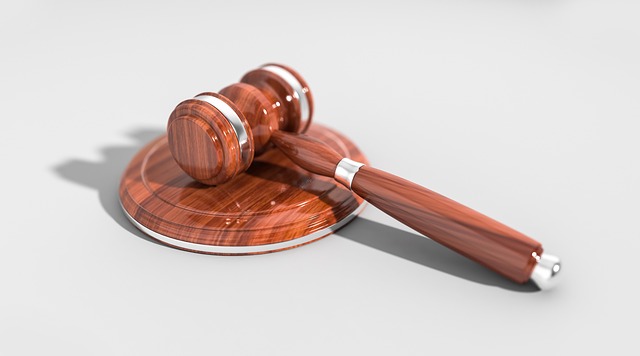Antitrust laws are crucial for regulating healthcare to prevent price fixing, market allocation, and abuse of dominant positions, ensuring fair competition and protecting consumers from higher costs and limited choices. Common legal issues like price-fixing and market division disrupt market equilibrium, leading to reduced access to care and poorer health outcomes. Regulatory bodies enforce laws with penalties like fines and structural changes to deter future violations and promote ethical business practices. Healthcare organizations must proactively comply through internal policies, staff awareness, training, audits, and community engagement to avoid legal battles.
In the intricate landscape of healthcare, understanding antitrust laws is paramount to maintain fair market dynamics. This article delves into the common legal issues surrounding antitrust violations, focusing on healthcare sectors. We explore real-world scenarios where practices such as price fixing or market allocation undermine patient welfare and competitive markets. By examining these cases, we highlight the significant impact on patients and the industry, while also detailing legal remedies and preventive strategies for healthcare organizations to navigate this complex regulatory environment.
- Understanding Antitrust Laws in Healthcare
- Common Scenarios of Violations in Practice
- Impact on Patients and Market Dynamics
- Legal Remedies and Enforcement Actions
- Preventive Measures for Healthcare Organizations
Understanding Antitrust Laws in Healthcare
Antitrust laws play a crucial role in regulating healthcare industries to ensure fair competition and protect consumers. These laws, often referred to as competition policies, aim to prevent anti-competitive practices that can drive up costs and limit patient choices. In the healthcare sector, where services are essential and often regulated, understanding these regulations is vital for both corporate and individual clients. Common legal issues in healthcare regulation include price fixing, market allocation, and abuse of dominant market positions, which can lead to severe penalties and reputational damage if violated.
The implementation of antitrust laws in healthcare has become increasingly important as healthcare systems evolve. Across the country, regulatory bodies monitor transactions, partnerships, and mergers to ensure they do not create barriers to entry or distort competition. Healthcare providers must adhere to these rules to maintain transparency and fairness in their respective businesses. This includes careful consideration of joint ventures, contracts, and pricing strategies to avoid any potential antitrust violations that could impact their operations and the broader healthcare market.
Common Scenarios of Violations in Practice
In the realm of healthcare regulation, antitrust violation cases often arise from seemingly innocuous practices that significantly impact market dynamics. Common legal issues include price-fixing, where healthcare providers collude to set artificial prices for services or medications. This practice hinders consumer choices and hurts patients in the long run. Another prevalent scenario is market division, where companies partition territories or customer groups, limiting competition and stifling innovation.
These violations can manifest in various ways, from hospital networks restricting access to certain specialists to pharmaceutical companies creating exclusive distribution deals. High-stakes cases often involve complex networks of corporate and individual clients, making it crucial for legal experts to navigate these intricate relationships. An unprecedented track record of successful antitrust prosecutions underscores the importance of vigilant oversight in ensuring fair competition within the healthcare industry.
Impact on Patients and Market Dynamics
Antitrust violations in healthcare can have profound effects on patients and market dynamics. When healthcare providers engage in anti-competitive practices such as price-fixing or market division, it often leads to higher costs for essential services. Patients across the country suffer from reduced access to affordable care, which can limit their treatment options and overall health outcomes.
These violations disrupt market equilibrium, preventing the free flow of resources and innovations that drive competition. As a result, patients may face longer wait times, limited availability of specialists, and less access to cutting-edge treatments. However, successful legal actions aimed at resolving these issues can achieve extraordinary results, ensuring fair competition and ultimately improving patient care by fostering innovation and keeping costs in check. By addressing common legal issues in healthcare regulation, the industry can move towards a more transparent and accessible market structure.
Legal Remedies and Enforcement Actions
In cases of antitrust violations, particularly within the intricate landscape of healthcare regulation, legal remedies play a pivotal role in ensuring fair competition and consumer protection. The primary goal is to restore market balance and prevent future transgressions. Common Legal Issues in Healthcare Regulation involve addressing price-fixing, market division, and anti-competitive practices through various enforcement actions. Regulatory bodies, such as the Federal Trade Commission (FTC) and the Department of Justice (DOJ), are tasked with investigating these violations and imposing penalties on offending entities. These penalties can include substantial fines, divestiture orders, or even structural changes to curb anti-competitive behaviors.
Enforcement actions not only seek to deter corporate and individual clients engaging in white collar defense strategies but also aim to restore harm caused to consumers and the market. The multifaceted approach involves a combination of legal proceedings, settlements, and proactive measures like industry-wide guidelines and educational programs. By leveraging these remedies, regulatory authorities send a strong message to the philanthropic and political communities about the severity of antitrust violations, fostering an environment conducive to fair competition and ethical business practices.
Preventive Measures for Healthcare Organizations
Healthcare organizations face unique challenges when it comes to antitrust compliance due to their intricate relationships with patients, insurers, and other providers. To mitigate risks and avoid costly legal battles, proactive measures are essential. One key strategy is to develop robust internal policies and procedures that adhere to competition laws. This involves fostering a culture of awareness among staff, ensuring transparency in pricing and referral practices, and implementing rigorous training programs on antitrust compliance.
Regular audits and reviews at all stages of the investigative and enforcement process can also serve as effective preventive measures. By staying vigilant and addressing common legal issues in healthcare regulation, such as price-fixing, bid-rigging, or anti-competitive arrangements, organizations can build a strong defense against potential antitrust violations. Moreover, engaging with philanthropic and political communities to promote fair competition practices can contribute to a positive and compliant organizational culture.
Antitrust violation cases in healthcare, stemming from common legal issues like price-fixing and market allocation, significantly impact patients and market dynamics. Understanding these violations, their causes, and consequences is paramount for navigating the complex landscape of healthcare regulation. By learning from past cases and implementing preventive measures, healthcare organizations can ensure fair competition, protect patient interests, and foster a robust marketplace. Staying informed and proactive in addressing antitrust concerns is crucial to maintaining ethical practices and avoiding legal repercussions.






